Chrome, Firefox, Safari, and Microsoft Edge track your browsing activities and show ads to generate revenue. This is a major threat to your privacy. However, you can overcome this issue using browser privacy extensions like Adblock and Privacy Badger.
While browsing online, you could experience many privacy issues. To prevent such security risks, some browsing extensions claim their service is the best way to protect your online privacy. But the point is, how does one know about the best extensions?
Today, we will explore some of the best privacy-providing browsers through our blog. These browser extensions are free and excellent for providing online privacy.
AdBlock vs. uBlock Origin
AdBlock prevents page elements such as advertisements from being shown while you browse online. It gives you the command to create your browsing experience as you want it. However, you can block certain ads on some sites and scripts from the third person by transferring your data.
The way AdBlockers works is interrupting websites’ business, as they depend on online advertisement revenue.
Some people use AdBlock Plus (ABP) without exception on every site, but others specify it for certain sites.
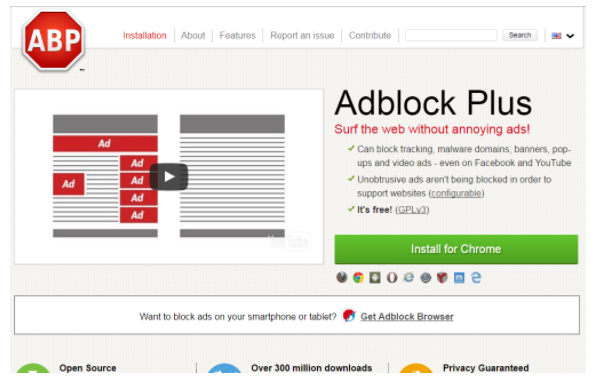
ABP is one of the most used AdBlocker extensions. One reason for its popularity is its ease of use and ability to block pop-ups, rollover ads, banner ads, and much more. It also stops third-party tracking cookies and scripts.
AdBlock mobile is an extension that allows users to block ads on apps and browsers. With AdBlock mobile, you can reduce your mobile data usage.
ABP faced criticism from its users when it was found to pass certain company ads, such as those of Google, Microsoft, Amazon, and many other large companies that pay them.
However, UBlock Origin is considered as the AdBlock alternative for online browsing.
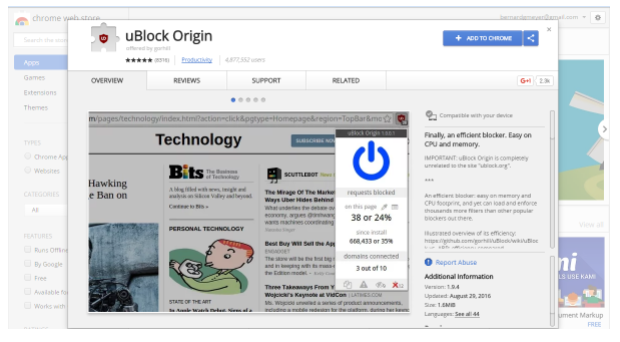
Unblock Origin provides more options for adblocking. It offers personalized features by allowing users to control ad visibility, i.e., you could see ads of your choice and block the ones you don’t want.
In addition, uBlock is less memory-consuming than Adblock, giving you a fast browsing experience.
uBlock Origin is accessible by Chrome, Firefox, Safari, and Microsoft Edge; ABP is available for Firefox, Chrome, Opera, Safari, Android, and Internet Explorer.
Disconnect vs. Privacy Badger
The browsing extensions that provide online security also include anti-trackers. Unlike AdBlockers, anti-trackers protect you from malvertising (‘malicious advertising’) and tracking by stopping cookies.
The Disconnect is one of the most popular anti-tracking extensions. It is easy to operate and protects you from malware, tracking, and malvertising. It even has secure Wi-Fi and bandwidth optimization, letting you control all site scripts from the toolbar menu.
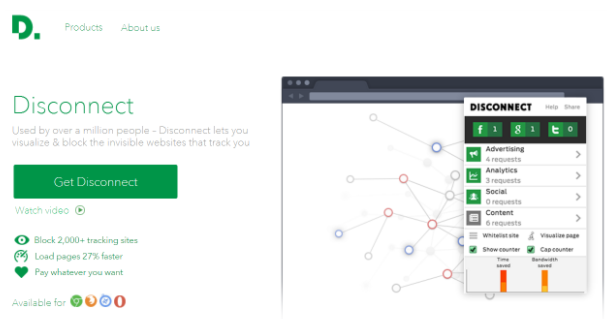
Tech giants like Google, Facebook, Amazon, and Twitter are generally blocked by Disconnect when they attempt to collect your data off-site.
Besides this, Privacy Badger is the extension by the Electronic Frontier Foundation known for its fight against online security.
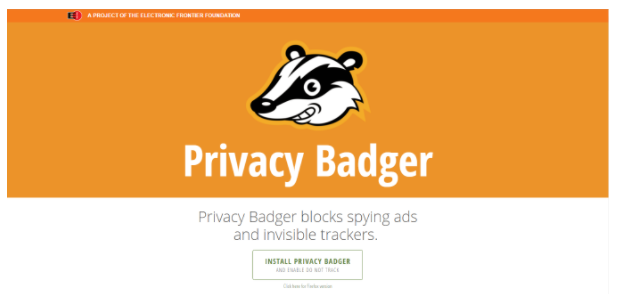
Privacy Badger Chrome makes a difference when it doesn’t give you the list of cookies or trackers to be blocked. However, the feature that creates a distinctive line between Privacy Badger and others is its heuristic algorithm that determines your browsing activity to decide what it should block. To do this, you have to use Privacy Badger Chrome more often.
Privacy Badger is available for Chrome, Opera, and Firefox; Disconnect is available for Firefox, Opera, Safari, and Chrome.
Other vital tools that can help you
The above privacy extensions will help you have a much better browsing experience by providing secure online browsing.
But some other tools could also cater to you while browsing.
While browsing, the HTTPS Everywhere Chrome extension will provide secure versions of your preferred sites by taking you to SSL sites whenever possible. This keeps you safe and makes online browsing easy.
On the other hand, a VPN is a technology that creates a secure connection to a remote server of your choice, making it seem as if your connection is coming from there. VPN keeps you anonymous and provides secure browsing.
If you want secure browsing, you need these tools and extensions, which are some of the available privacy means. But you should be aware that having such tools is not enough to ensure online privacy; you must use them.
Share this article
About the Author
Zehra Ali is a Tech Reporter and Journalist. She has done her Masters in Mass Communication. Topics related to cybersecurity, IoT, AI, Big Data and other privacy matters are extensively covered by her on various platforms. You can follow her on twitter.
More from Zehra AliRelated Posts

Tor Browser Privacy Setting – How to Setup Properly?
The Tor browser is notorious for providing a secure browsing experience and allowing access to the d...

The 14 Best Temporary Email Services for 2025
KEY TAKEAWAYS If you’re in a hurry to find out the disposable email service provider, have a q...

Is Tor Illegal? Learn What Makes It Legal to Use
KEY TAKEAWAYS Tor is one of the most popular private browsers in the industry. However, most people ...
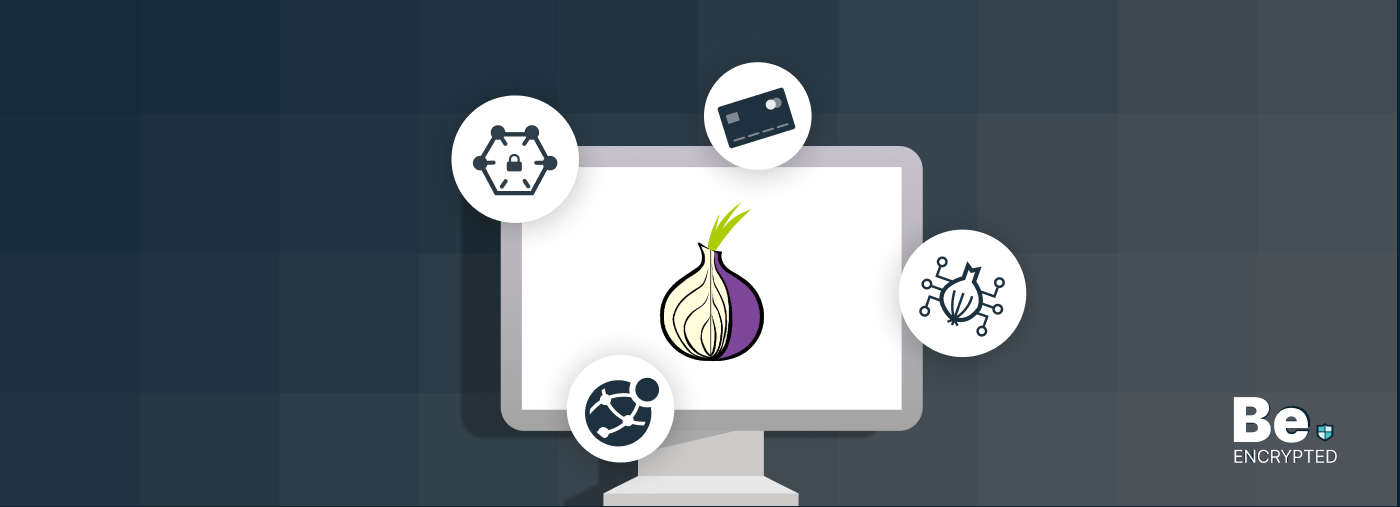
17 Best Tor Alternatives for Anonymous Browsing
KEY TAKEAWAYS If you want a Tor alternative to achieve better privacy and security, using a VPN like...
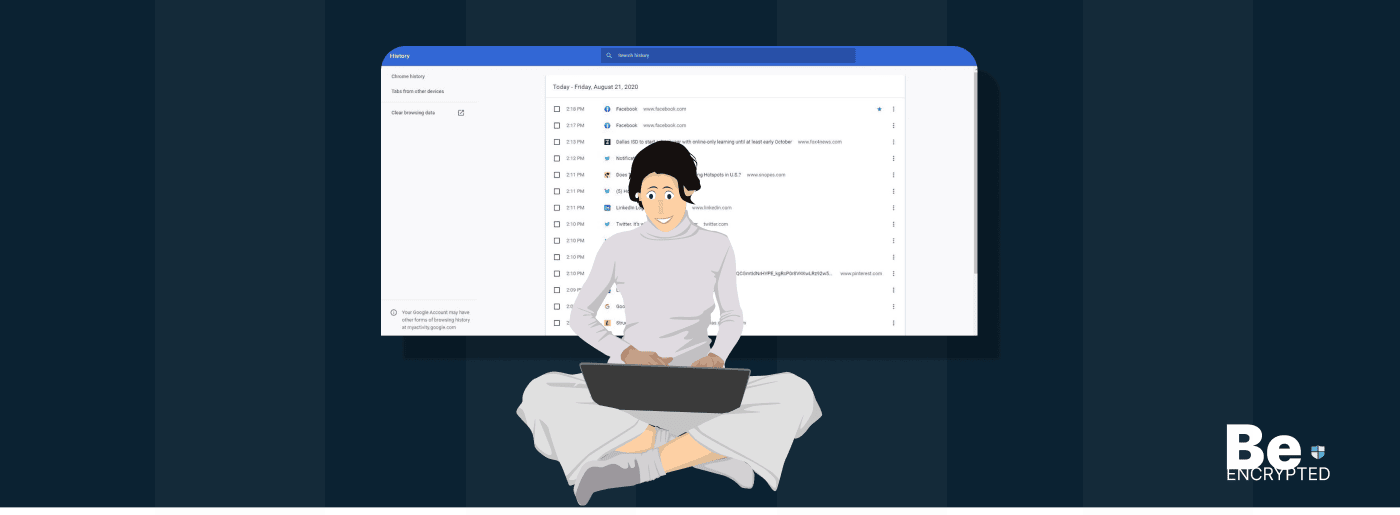
Who Can See My Browsing History and Activities – Lets Find Out
KEY TAKEAWAYS The following mentioned below are the most prominent sources that can see your browsin...
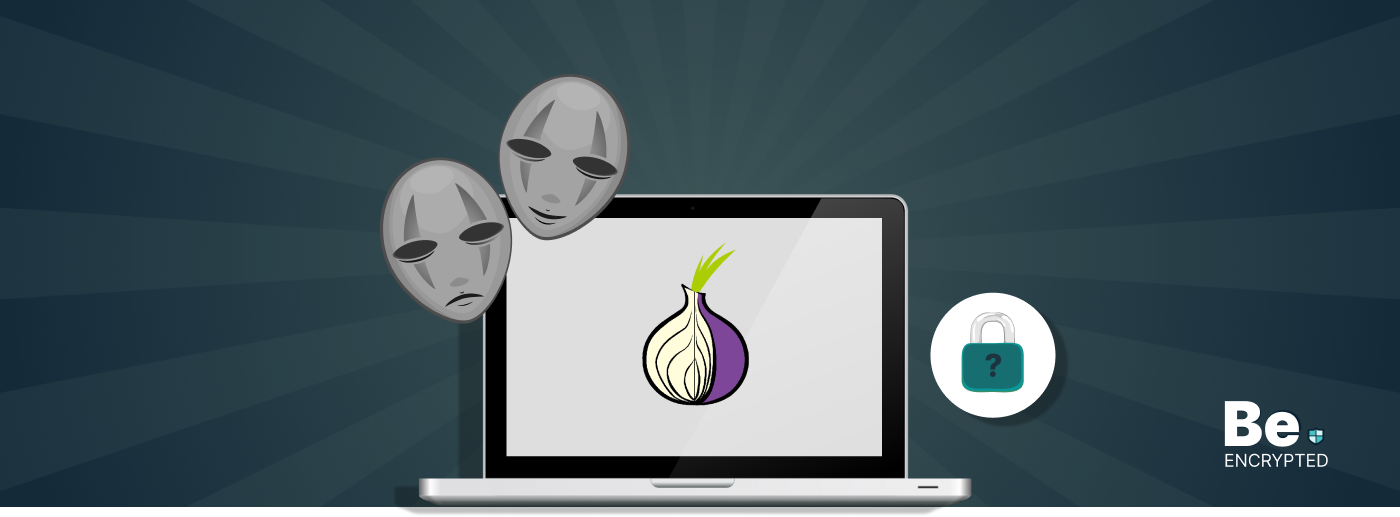
How to Use Tor Safely in 2024? 7 Tips for Beginners
KEY TAKEAWAYS Tor does provide some level of protection, but it will never provide enough data encry...


